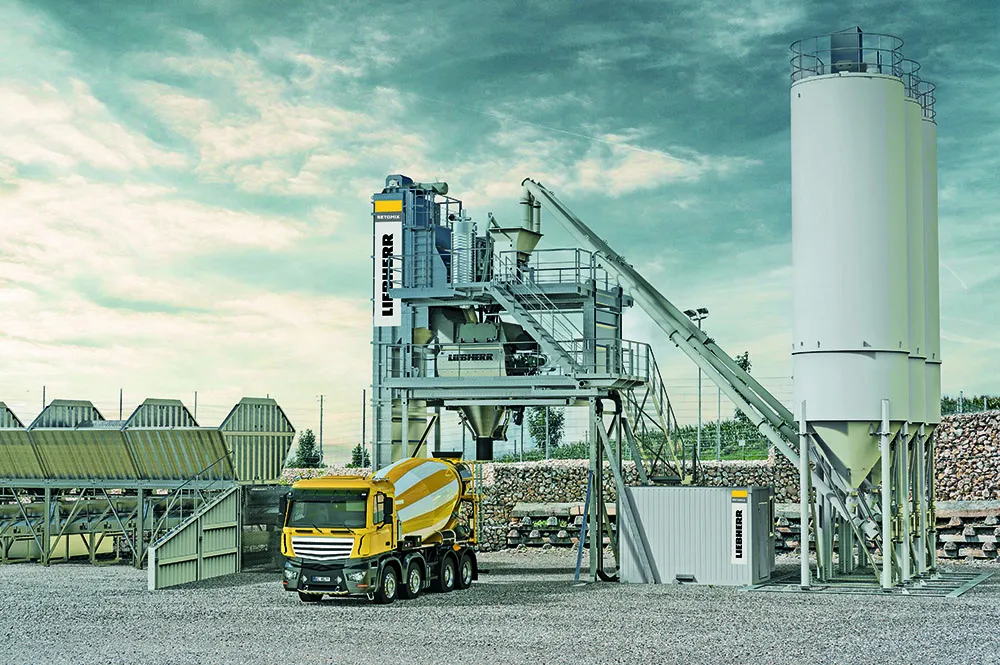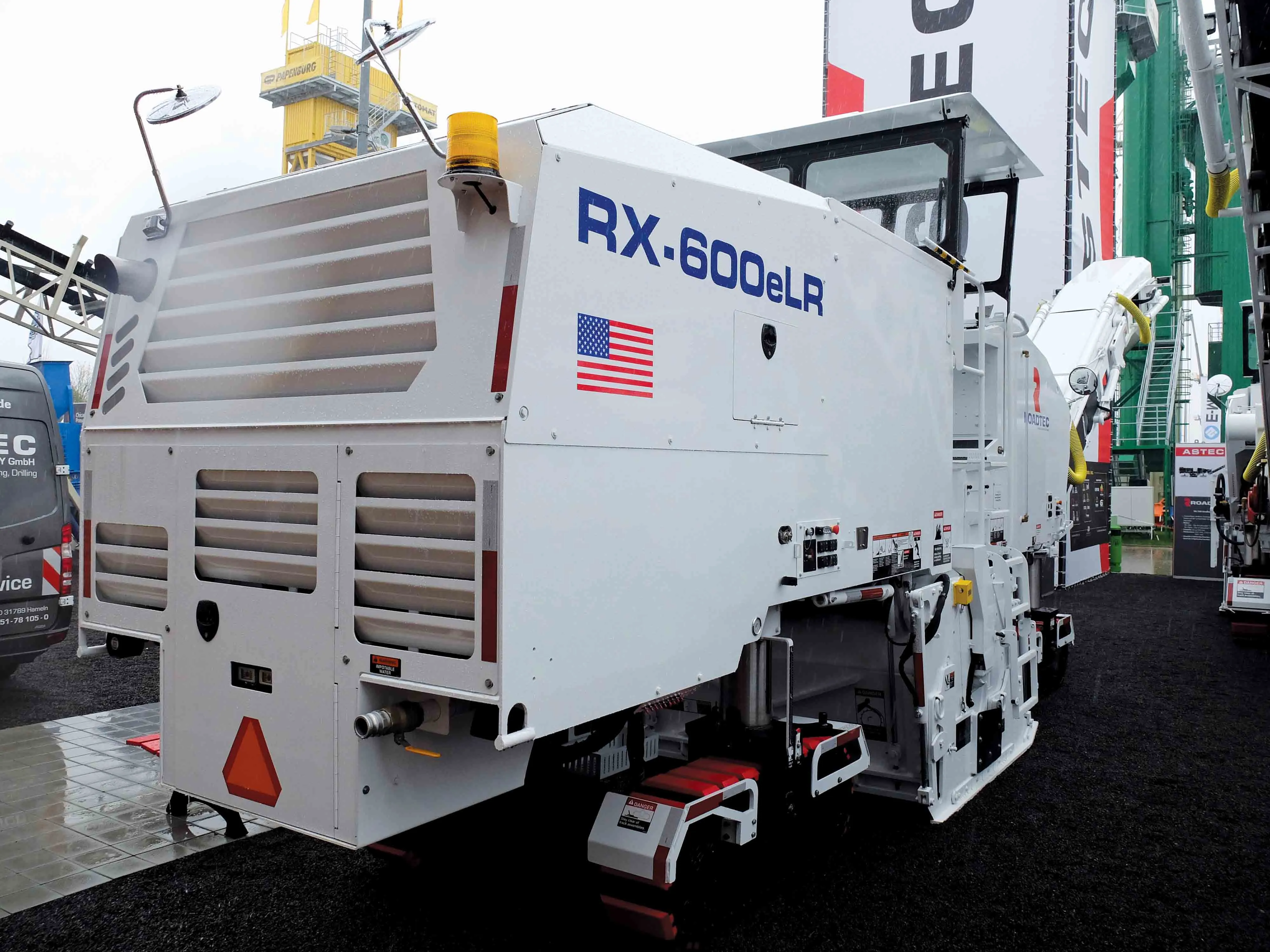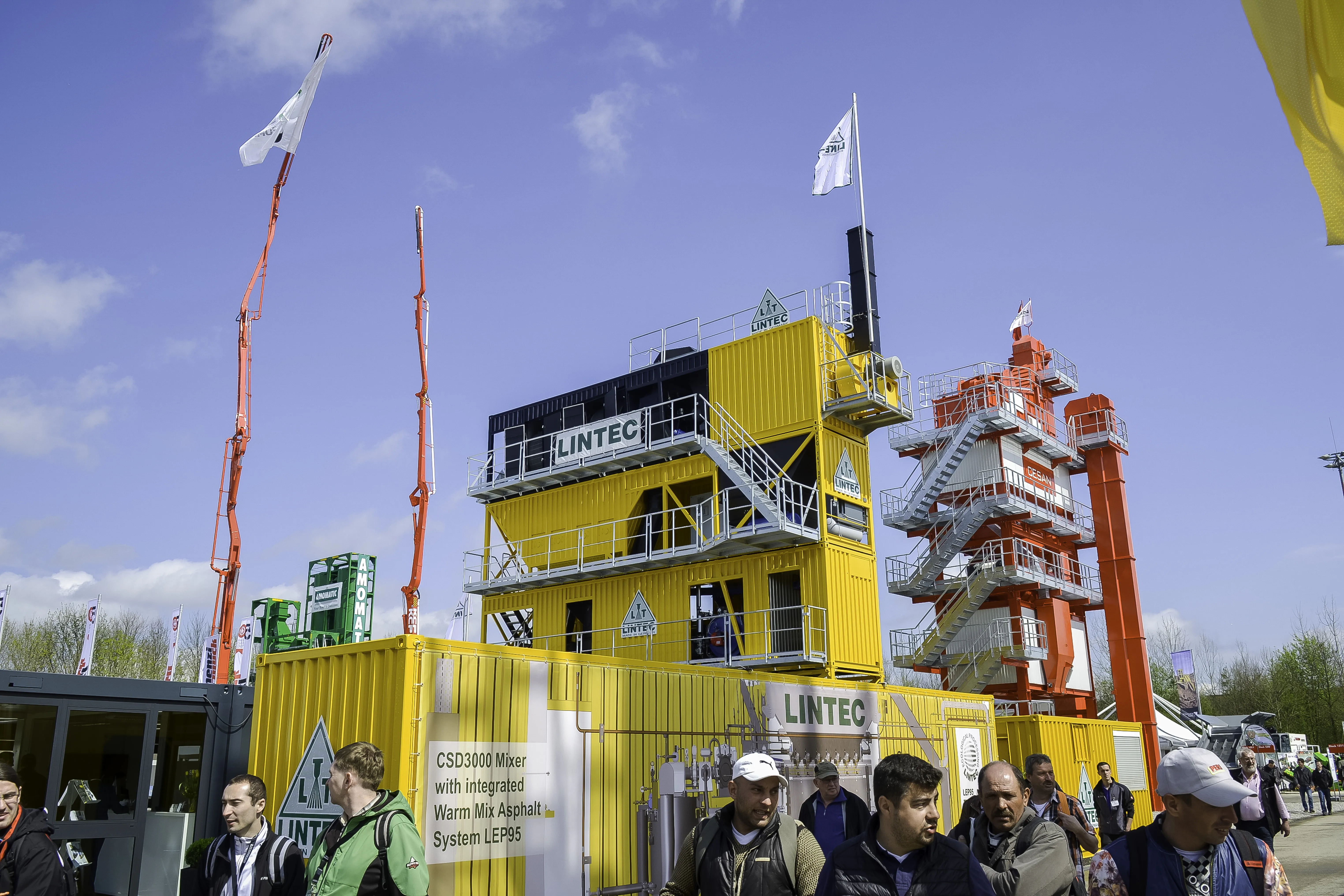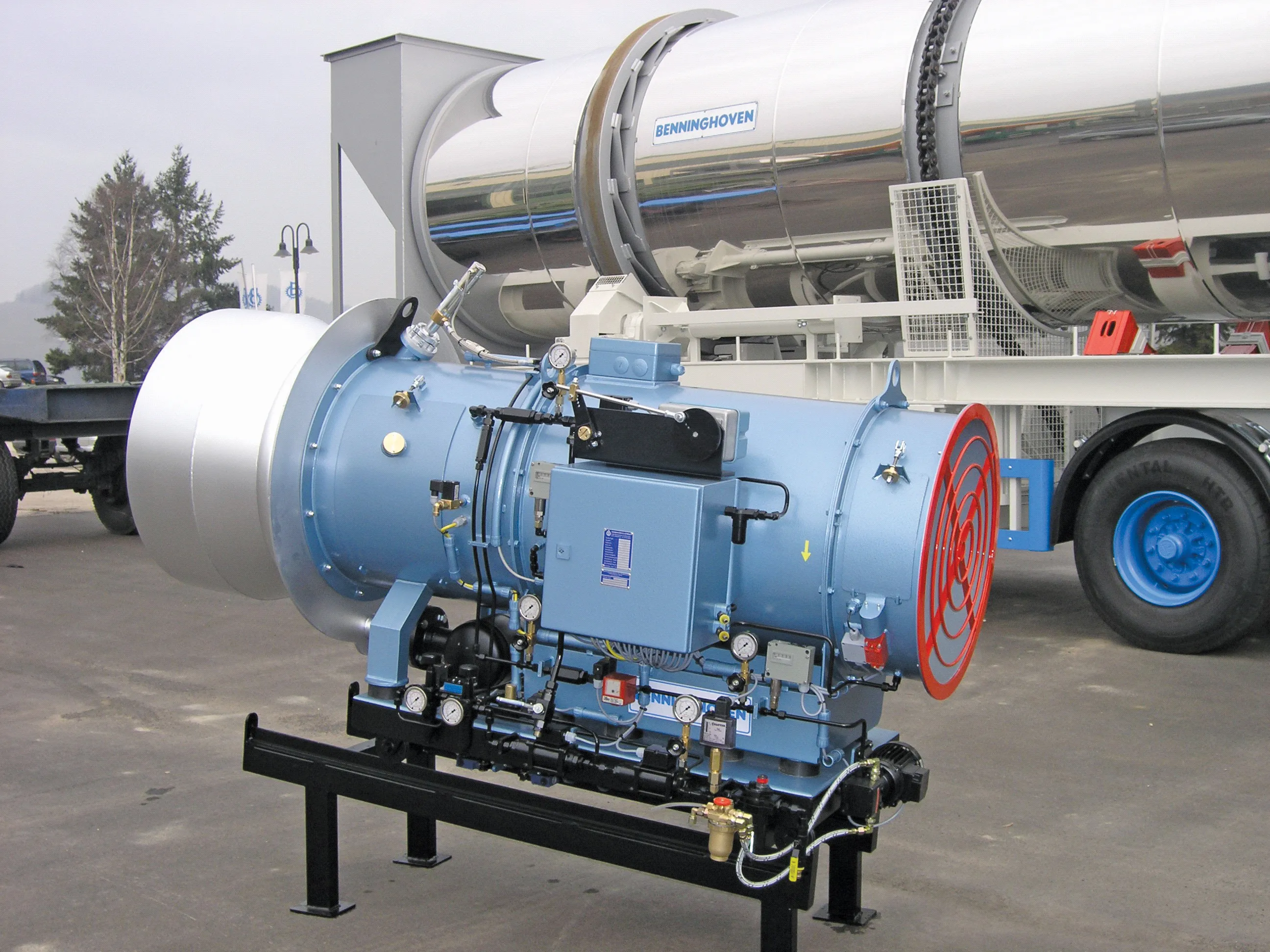
The modular design allows the plants to meet specific requirements from customers, as well as allowing different performance classes using the same system. One of the key innovations is with the introduction of sophisticated frequency converter technology that reduces current consumption by up to 30%.
The new Betomix and Mobilmix mixing plant series can be combined using prefabricated modules and replaces several predecessor series. For the customer, this reduces delivery times and the speed of assembly. Improvements reduce current consumption by up to 30% and increase weighing accuracy, so that up to 7.5kg of cement can be saved for each 1m3 of concrete produced.
Individual modules can be planned and manufactured independently of each other and combined with other modules. The components are almost completely wired and fully assembled at Liebherr. After testing, the modules are delivered as complete units to the construction site, reducing transport costs. The modules are no more than 3m wide so that special transport systems are no longer required for most system variants. Due to the innovative folding concept and plug connections, the modules can be quickly assembled and put into operation at the construction site.
All the units fit together while the galvanised modules have a long service life and are robust. Depending on customer requirements and use, mixer systems can be installed in the same basic system. Liebherr uses its own twin-shaft or ring-pan mixers. Output rates of 100-210m³ of compacted fresh concrete/hour are possible. Multiple optional accessories can be integrated without additional effort. Various storage facilities for the aggregates can be incorporated, such as a tower silo, while even the optional winter cladding is standardised for all variants.
For energy savings of up to 30%, the frequency converters control the drives for the mixer and charger elevator and optimise the mixing process as a whole. Hybrid mixing processes and shorter mixing times are said to be easy to implement, avoiding power peaks. Also, wear is reduced due to the soft starting and soft stopping of the drives. It is the frequency converters however that offer the greatest and most important potential in the dosing of cement with an accuracy of +/- 0.5%. With a typical recipe with 300kg of cement/m3 of concrete, up to 7.5kg of cement can be saved.
The new mixing plant generation is marketed under the name of Mobilmix. Due to the modular design, the equipment can be moved quickly between sites. A number of versions are available for mobile use. These options include a steel foundation, an integrated technical container for wiring at the factory, a mobile in-line silo on steel foundations inclusive of folding chamber walls and a mobile cement silo also on steel foundations. The plant can also be equipped with a mobile cladding as an option. The mobile version is being made available from 2023.
A key feature of the modular construction is the skip. This can be hung on the respective mixing plant, regardless of the required plant performance. Different height levels of the aggregate storage are easier to realise with the vertical skip than with an inclined construction. Due to the vertical construction, up to 20% less space is required for the installation area. The elevator is designed as a structurally separate element and can be used with the stationary and mobile versions of the new mixing plants.
All accessible areas of the mixing plant offer sufficient space, for easier maintenance and cleaning. There is also space for the arrangement of additional containers, such as for steel fibre dosage. A chain hoist can be installed on the weighing platform which can be used to lift Euro pallets with loads of up to 1,000kg to the appropriate working level through the material hatches.
The new high-pressure mixer cleaning system, LiClean, combines with the creep speed cleaning mode, to deliver optimum cleaning, according to the firm. In addition, an optional automatic cleaning system is available for the truck mixer feeding hopper.









